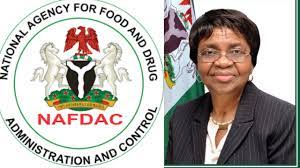…destroys Tramadol worth N95b
By Hassan Zaggi
The Director General of the National Agency for Food and Drug Administration and Control (NAFDAC),
Prof. Mojisola Christianah Adeyeye, has warned that excessive fasting could cause kidney and liver damage.
She stated this at a media briefing to announced the destruction of five 40 feet containers of unregistered pharmaceuticals including Tramadol worth of 95 billion naira. The destruction was carried out in Benin Republic four years after they were intercepted.
Prof. Adeyeye therefore, advised Nigerians to ensure they conduct their religious obligation of fasting with common sense so that they do not endanger their liver, kidney and other vital body organs.
“We are a religious country, Muslims and Christians. We fast a lot and is part of the kidney problem. For the body to have monostatic balance, the water level in the body must be enough to make your organs to function. Some people will fast for over 20 days without drinking much water, the kidney is being punished. If you put chemical in it, it dripples in an exponential manner to damage the kidney because the kidney does not have water to dilute. That is what all of us should know. I fast, but I fast with common sense.
“We have to fast with common sense, if not we will pay it with our kidney,” she said.
Responding to a question on the effort of NAFDAC to totally eradicate fake and substandard products in the country, Prof. Adeyeye said: “All over the world, we have substandard medicines, all we are doing is to bring it to minimal level so that if 10 people take medicines, 9.9 should be good medicine.”
She further advised Nigerians against buying drugs from hawkers and corner medicine stores.
‘Do not buy medicines from hawkers, do not buy medicines from corner stores, buy medicines from pharmacists. Fake medicines cannot be totally eradicated. We can eradicate one class of medicines but not all. That is why we have regulatory agencies so that they can control the level of substandard products in the country.”
Speaking on the destruction of the Tramadol worth 9.5 billion naira, the NAFDAC Director General said that the destruction which took place in Cotonou, Benin Republic is the first of such magnitude in the history of NAFDAC.
She explained that staff of Port Inspection Directorate (PID) of the agency travelled “to Cotonou where the destruction exercise of the five containers took place on December 21 and 22, 2022.
“This international landmark achievement (that had never been recorded in the history of the two countries and NAFDAC) did not come without the unflinching efforts of the staff of Ports Inspection Directorate in Apapa and Seme Border,” she said.
Recalling the process that led to the arrest of the containers, the NAFDAC Director General said: “Following an intelligence report from the Presidency, Director-General of NAFDAC in August 2018 directed the Director of Ports Inspection Directorate, Prof. Samson B. Adebayo on the intention of some unscrupulous importers to ship 31 containers of unregistered pharmaceutical products including tramadol 200mg and above from India. The containers were labelled building materials and for bonded terminal.
“The Director, Ports Inspection Directorate, working with his Intelligence & Monitoring Unit commenced the surveillance and monitoring of the reported containers from the ports of loading to the successive ports where they were transloaded along the sea routes.
“The first approach was to collaborate with the Nigeria Customs Service under the leadership of Comptroller General (Col.) Ahmed Ali (rtd.).
“Eventually, 21 of the containers were discharged at the Apapa port in Lagos, Nigeria as manifested. One container couldn’t be tracked because of a missing container number. Out of the 21 containers, only two had building materials.
“However, as the importers of the containers became aware that NAFDAC was tracking and monitoring the containers on arrival at the Apapa port and intercepting them, they decided to change their strategy by diverting the remaining away from the Nigerian port. Four containers never got to Nigeria but were discharged at transhipment in Malaysia.
“One container was transferred to the Cotonou port in the Republic of Benin while the remaining four were initially diverted to the Tema Port in Ghana but later diverted them to Cotonou having met resistance from Ghana Food and Drug Agency that NAFDAC already contacted for collaboration to stop the 4 containers.”
She further recalled that: “Some entity took the case to court in Benin that the containers should be brought back to Nigeria. This took about one year plus but Ambassador Aluko stayed on the case until the court made the judgement that the containers can be destroyed in Benin.
“Alas, the government of the Republic of Benin eventually agreed to engage with the Nigerian counterparts to carry out the destruction of these containers in Cotonou.
While applauding the NDLEA for its relentless support, Prof. Adeyeye, commended the government of the Republic Benin, Nigerian Embassy in the Republic of Benin, Nigeria Customs Service, and Ghana Food and Drug Agency.


